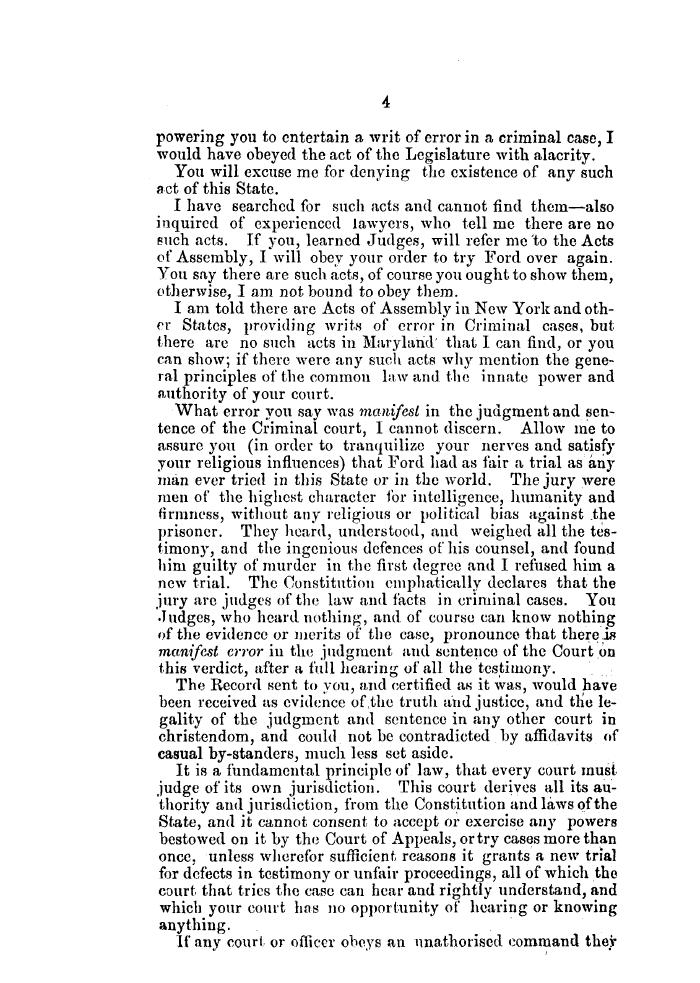|
powering you to entertain a writ of error in a criminal case, I would have obeyed the act of the Legislature with alacrity.
You will excuse me for denying the existence of any such act of this State.
I have searched for vsuch acts and cannot find them—also inquired of experienced lawyers, who tell me there are no euch acts. If you, learned Judges, will refer me to the Acts of Assembly, I will obey your order to try Ford over again. You say there are such acts, of course you ought to show them, otherwise, I am not bound to obey them.
I am told there are Acts of Assembly in New York and other States, providing writs of error in Criminal cases, but there are no such acts in Maryland that I can find, or you can show; if there were any such acts why mention the general principles of the common law and the innate power and authority of your court.
What error you say was manifest in the judgment and sentence of the Criminal court, I cannot discern. Allow me to assure you (in order to tranquilize your nerves and satisfy your religious influences) that Ford had as fair a trial as any man ever tried in this State or in the world. The jury Avere men of the highest character for intelligence, humanity and firmness, without any religious or political bias against .the prisoner. They heard, understood, and weighed all the testimony, and the ingenious defences of his counsel, and found him guilty of murder in the first degree and I refused him a new trial. The Constitution emphatically declares that the jury are judges of the law and facts in criminal cases. You Judges, who heard nothing, and of course can know nothing of the evidence or merits of the case, pronounce that there is manifest error in the judgment and sentence of the Court on this verdict, after a full hearing of all the testimony.
The Record sent to you, and certified as it was, would have been received as evidence of .the truth and justice, and the legality of the judgment and sentence in any other court in Christendom, and could not be contradicted by affidavits of casual by-standers, much less set aside.
It is a fundamental principle of law, that every court must judge of its own jurisdiction. This court derives all its authority and jurisdiction, from the Constitution and laws of the State, and it cannot consent to accept or exercise any powers bestowed on it by the Court of Appeals, or try cases more than once, unless wherefor sufficient reasons it grants a new trial for defects in testimony or unfair proceedings, all of which the court that tries the case can hear and rightly understand, and which your court has no opportunity of hearing or knowing anything.
If any court or officer obeys an imathorised command they
|

